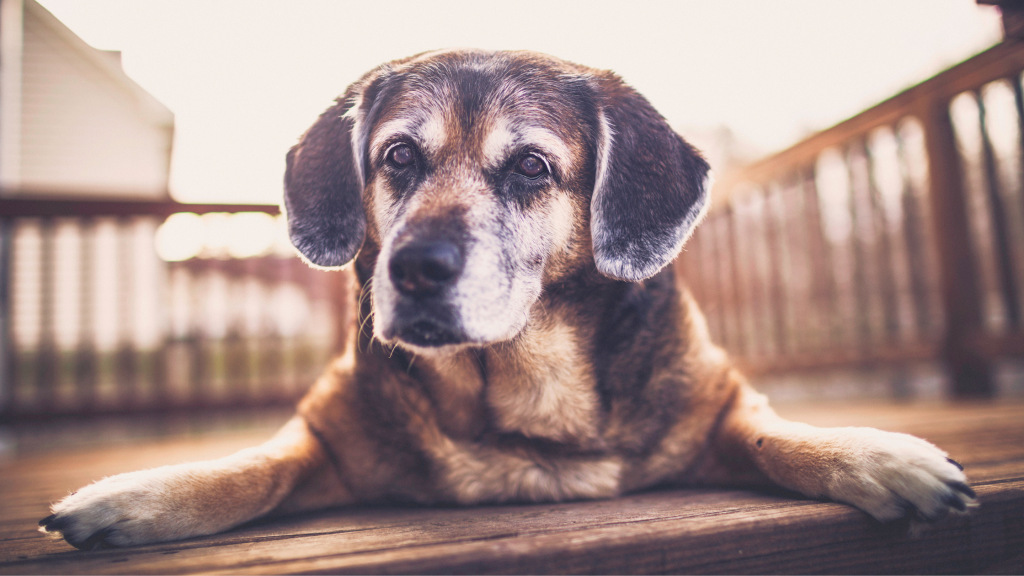
Caring for an aging pet is a deeply personal and emotional journey. Pets, like humans, experience a range of health changes as they age. With advancements in veterinary care, pets are living longer, but this also means an increase in the likelihood of age-related health issues and associated costs. The bond we share with our pets often grows stronger as they age, making the decision to provide the best possible care a deeply emotional one as well.
Understanding Aging in Pets
- Cats are generally considered senior after 10 years of age.
- Dogs have a varied age of seniority depending on their size:
- Small or toy breeds (<20 pounds): 8-11 years.
- Medium-sized breeds (20-50 pounds): 8-10 years.
- Large breeds (50-90 pounds): 8-9 years.
- Giant breeds (>90 pounds): 6-7 years.
Health Care Needs of Senior Pets
Senior pets are more susceptible to diseases and require more attention, including frequent veterinary visits. Common issues include cancer (almost half of dogs and about a third of cats over 10 years old), heart disease, kidney or urinary tract disease, diabetes, joint or bone disease, and vision or hearing loss.
Additional Coverage Options
Considering add-on wellness plans for senior pets is beneficial. These plans can cover expenses for routine check-ups, dental care, and other treatments that are increasingly necessary as pets age.
Emotional Considerations in Caring for Senior Pets
The decision to insure a senior pet goes beyond finances; it’s a testament to the deep bond and commitment we have towards our aging companions. Insuring our pets is a way to ensure that their later years are as comfortable and healthy as possible, easing the burden of tough decisions and allowing us to focus on cherishing our time with them.
Tips for Reducing Insurance Costs
- Insuring pets while young ensures lifetime coverage.
- Insuring multiple pets often leads to discounts.
- Adjusting policy terms, like reimbursement levels and deductibles, can lower premiums.
Assessing the Worth of Senior Pet Insurance
The decision to insure a senior pet is personal and depends on various factors, including the pet’s health and the owner’s financial capability. While insurance for a senior pet is more expensive, as it is a balance of financial and emotional factors, it can provide financial relief in case of unexpected health issues. While the cost of insurance for a senior pet is higher, it provides peace of mind, knowing that your pet can receive necessary care without financial strain impacting the decision.
The Cost of Pet Insurance
The average yearly cost for an accident and illness policy is $640 for dogs and $387 for cats. However, these costs can increase significantly as pets age. For example, the monthly cost for insuring a 1-year-old dog versus a 7-year-old dog can range from $37.73 to $51.93 with one insurer, and from $65.19 to $161.03 with another.
Vet Expenditure for Senior Pets
- Routine visit: $250 for dogs, $198 for cats.
- Sick visit: $304 for dogs, $200 for cats.
- Emergency visit: $349 for dogs, $249 for cats.
- Surgical visit: $472 for dogs, $232 for cats.
Insurance Providers for Senior Pets
Several companies offer insurance plans specifically for senior pets:
Pumpkin: Great for senior cats and dogs.
Prudent Pet: Offers a range of plans, including some very basic ones with senior-friendly perks.
Crum & Forster Pet Insurance Group: Operates as the ASPCA Pet Health Insurance provider with a range of coverage options.
Conclusion
Insuring a senior pet is a significant financial commitment, intertwined with an emotional investment in their well-being. The decision should consider the pet’s health needs, the owner’s financial situation, and the deep emotional bond shared with the pet. Regular vet check-ups, preventive care, and insurance play a crucial role in ensuring the health and happiness of senior pets, allowing pet owners to enjoy every precious moment with their beloved companions.
